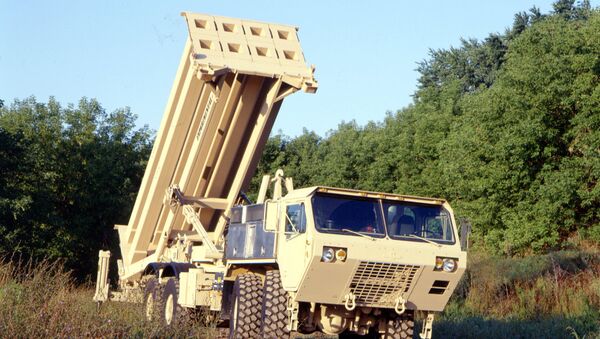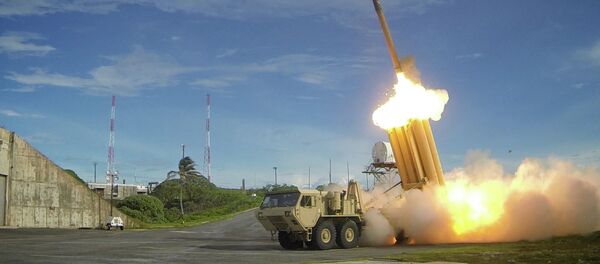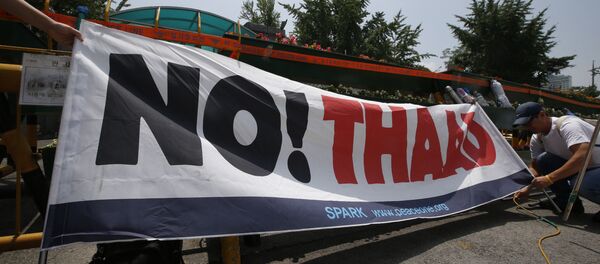The fact that South Korea has agreed on the deployment of an American missile defense system shows that its dual foreign policy failed, Takesada Hideshi, a professor at Japan’s Takushoku University, said.
"South Korea cannot cut off economic ties with China as well as military ties with the United States. Previously, the South Korean government did everything possible to have economic ties with China and military ties with the US. However, it is impossible. Finally, Seoul agreed on the THAAD missile defense in South Korea," he told Sputnik.
This situation perfectly showed South Korea has a preference. For Seoul, foreign policy and military cooperation with the US is more important than normal relations with Beijing.
As a result, now South Korea is between Scylla and Charybdis, and the situation is complicated, he said. President Park Geun-hye is likely to have problems with her "double game."
China is seriously concerned about the deployment of a THAAD system is South Korea, Vladimir Evseyev, deputy director of the Institute of CIS Countries, told Sputnik.
"The deployment of THAAD missile defenses in South Korea is a headache for China. This system would allow for intercepting Chinese mid-range missiles that are stationed at a base near the Korean peninsula. In addition to THAAD systems, maritime interception systems and ship-based Aegis systems have been deployed to South Korea," the analyst said.
In response, China is likely to take military and technical measures. For example, the goal may be to prevent US warships from coming at a distance close enough to intercept Chinese missiles. This distance is at least 1,000 km. Thus, China may deploy coastal missile systems, warships carrying guided rockets as well as submarines armed with cruise missiles. Another problem is a South Korean radio-radar station, with an operational range of around 1,000 km.
Moreover, Evseyev noted that if THAAD systems are deployed to South Korea Beijing may change its stance towards the North Korean problem.
"If China sees the deployment as a major threat Beijing may ease sanctions against Pyongyang and make the border more transparent. China may decrease pressure on North Korea over nuclear and missile tests. As a result, relations between Beijing and Pyongyang may improve," the expert suggested.
However, the best way to resolve the difficulties would be the creation of a common system of regional security, Evseyev pointed out.
This would help decrease tensions on the Korean peninsula. Despite the fact that Pyongyang is ready to ease the standoff it is obvious that the US would block the move because it is not in Washington’s strategic interests, he concluded.




